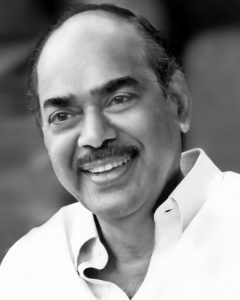The veteran film producer Padmabushan Daggubati Ramanaidu was born in Karamchedu, Prakasam district of Andhra Pradesh, on June 6, 1936. He belonged to a family that owned a rice mill and a transport business. After his graduation from Presidency College, Madras he closed his family transport business and moved to Chennai in 1962 looking for better prospects. By chance, when he met some important people of the Telugu industry his life took a big turn. The very next year he became a financial partner in the Bhanumathi-Gummudi feature Anuragam (1963) that however did not do well.

